 If you’ve seen the original Westworld, you may not understand what the big deal is about a remake of a Michael Crichton-scripted tale of technology gone murderously out of control: basically, Jurassic Park with androids. Or since Westworld came first, I guess it’d be fairer to say Jurassic Park is Westworld with dinosaurs. They’re even both set in the backdrop of a theme park. The comparison is not subtle, and neither is any moral or philosophical messaging.
Westworld, the new HBO series, keeps the basic trappings of the premise — a futuristic theme park where extremely realistic androids recreate and populate historical settings for the pleasure of rich tourists (up to and including acts of sex and murder) — but so far looks to be intending to take a much deeper look into the underpinnings of identity, memory, and thought along the lines I mention above.
Interestingly enough, in the original movie there were other parts of the theme park shown such as one based on Ancient Rome. So far the new series dispenses with this in favor of focusing on the particular setting of its title, and it occurred to me in my musings over this article that there are few better choices that you could make than to match up the wild, unexplored frontier of AI consciousness with the frontier exemplified by the the American Old West. I’ve talked before about how a huge part of the Western genre lies in the shifting lines between civilization and savagery, and now I think: isn’t that something that could also apply to our brains, in that struggle between our higher and lower natures? Throw robots on the verge of Singularity into that mix, and pardners, that’s a real heady alchemical concoction you’ve got brewing. I’m ready and willing to drink some more down.
If you’ve seen the original Westworld, you may not understand what the big deal is about a remake of a Michael Crichton-scripted tale of technology gone murderously out of control: basically, Jurassic Park with androids. Or since Westworld came first, I guess it’d be fairer to say Jurassic Park is Westworld with dinosaurs. They’re even both set in the backdrop of a theme park. The comparison is not subtle, and neither is any moral or philosophical messaging.
Westworld, the new HBO series, keeps the basic trappings of the premise — a futuristic theme park where extremely realistic androids recreate and populate historical settings for the pleasure of rich tourists (up to and including acts of sex and murder) — but so far looks to be intending to take a much deeper look into the underpinnings of identity, memory, and thought along the lines I mention above.
Interestingly enough, in the original movie there were other parts of the theme park shown such as one based on Ancient Rome. So far the new series dispenses with this in favor of focusing on the particular setting of its title, and it occurred to me in my musings over this article that there are few better choices that you could make than to match up the wild, unexplored frontier of AI consciousness with the frontier exemplified by the the American Old West. I’ve talked before about how a huge part of the Western genre lies in the shifting lines between civilization and savagery, and now I think: isn’t that something that could also apply to our brains, in that struggle between our higher and lower natures? Throw robots on the verge of Singularity into that mix, and pardners, that’s a real heady alchemical concoction you’ve got brewing. I’m ready and willing to drink some more down.
Chuck sez: "Never let a covert operation get in the way of a bad pun."








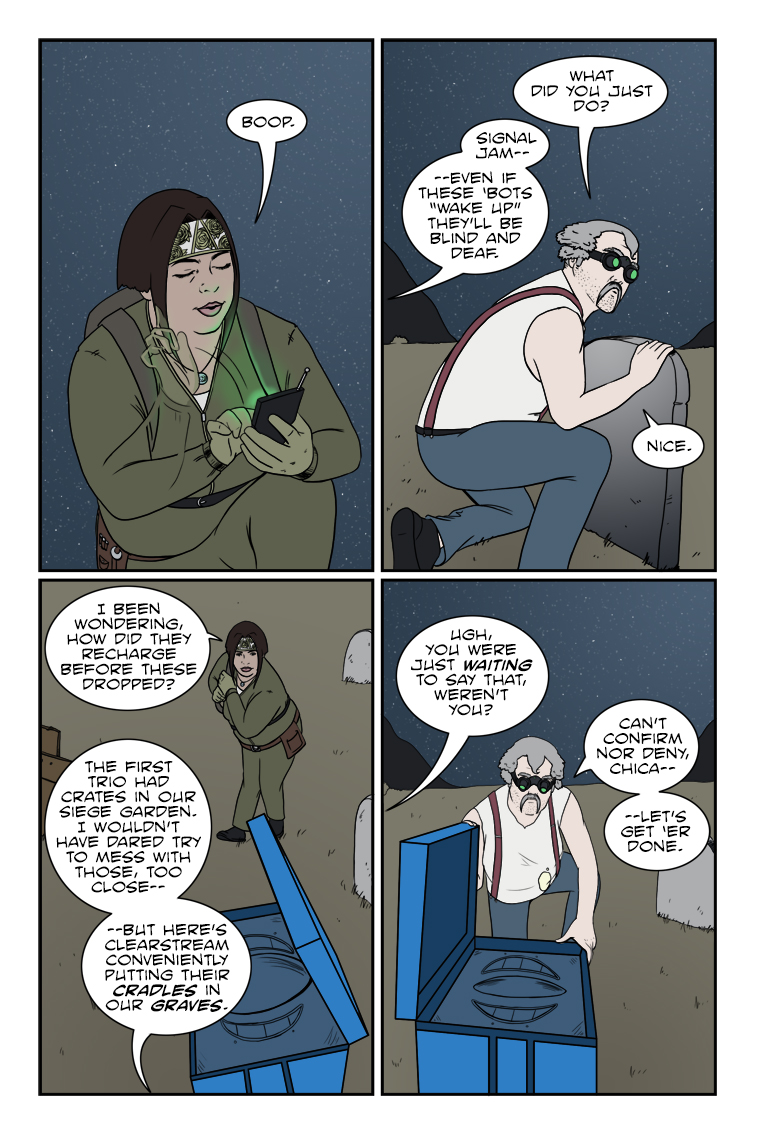

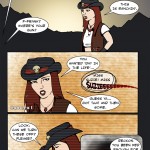
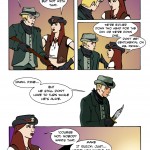
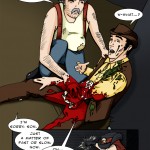
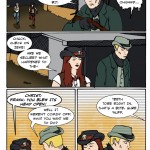
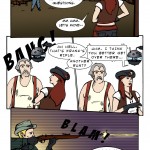

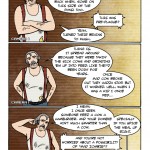
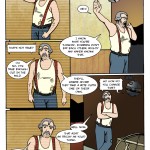
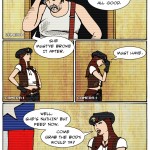
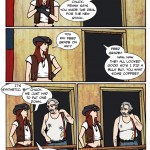
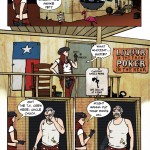


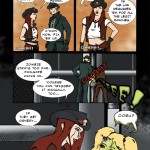
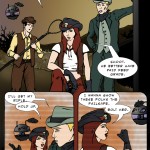
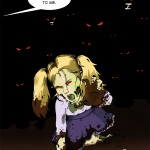
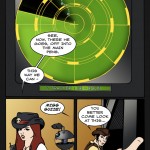
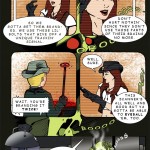
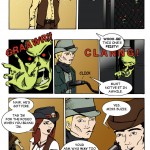

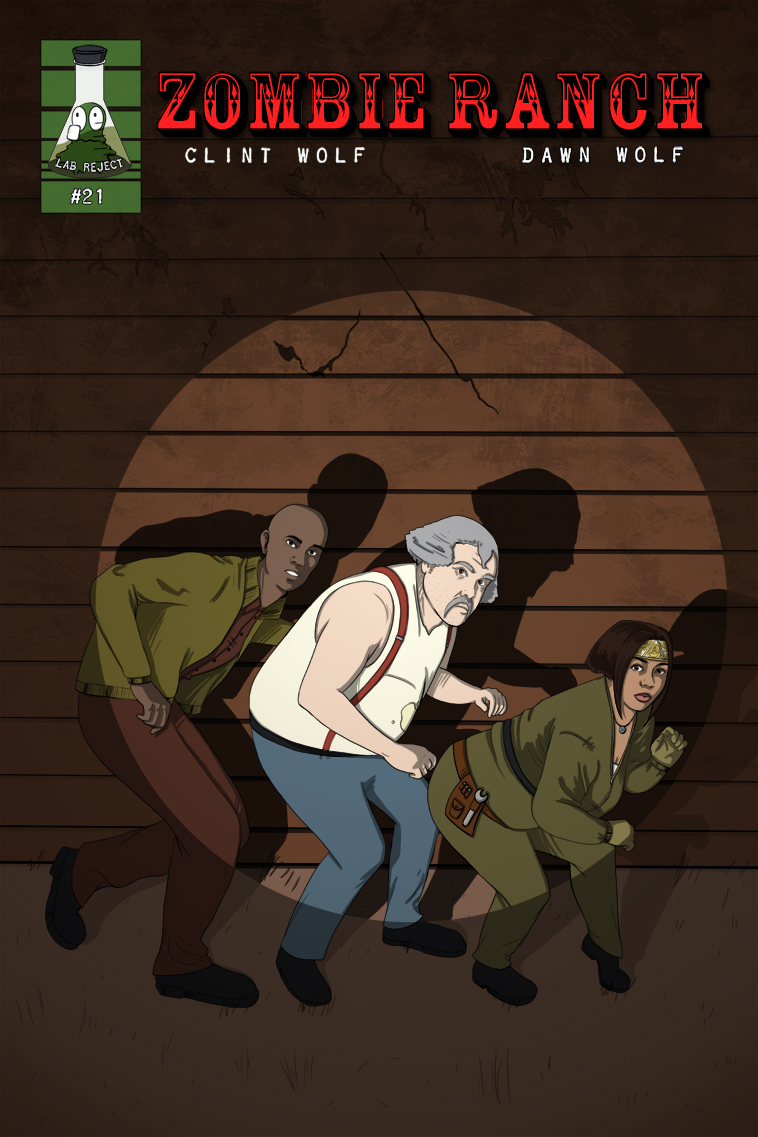
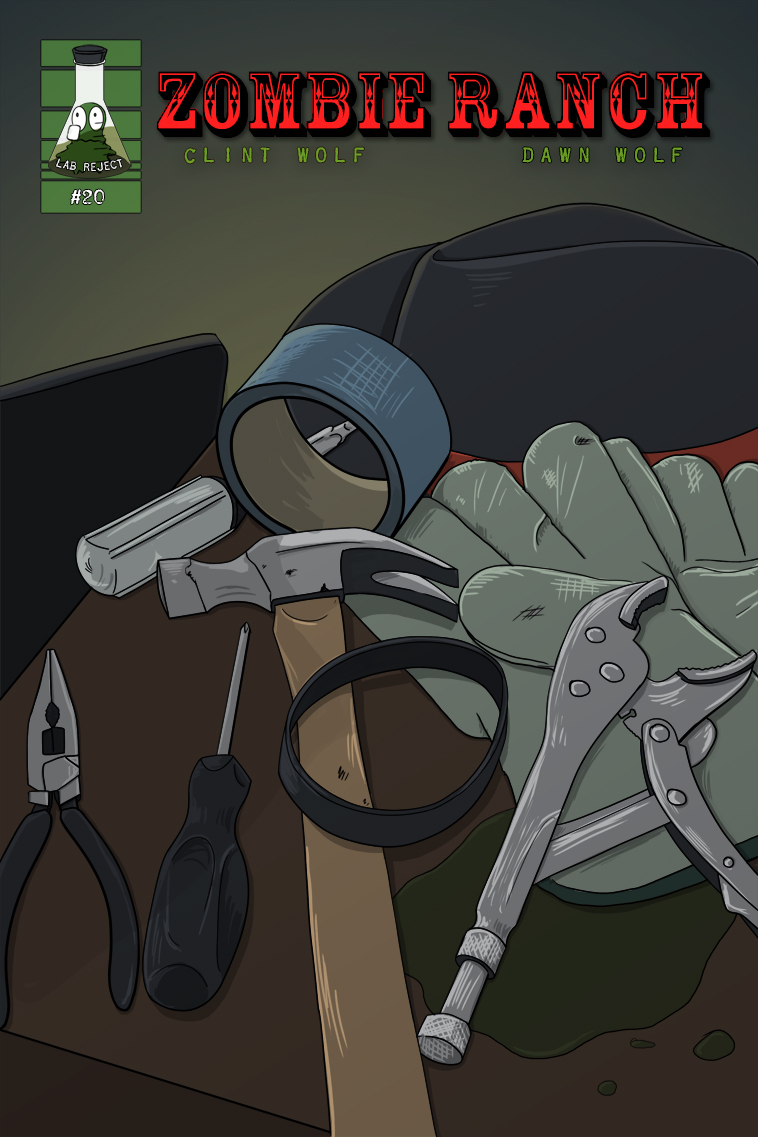
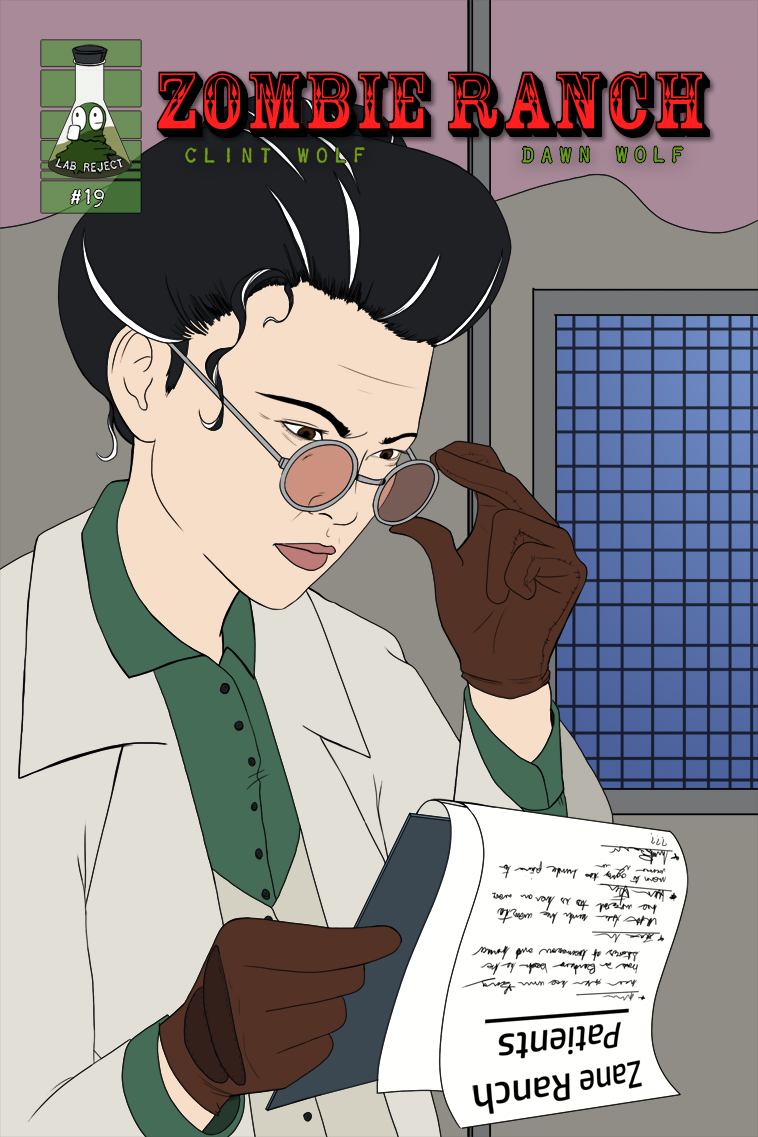
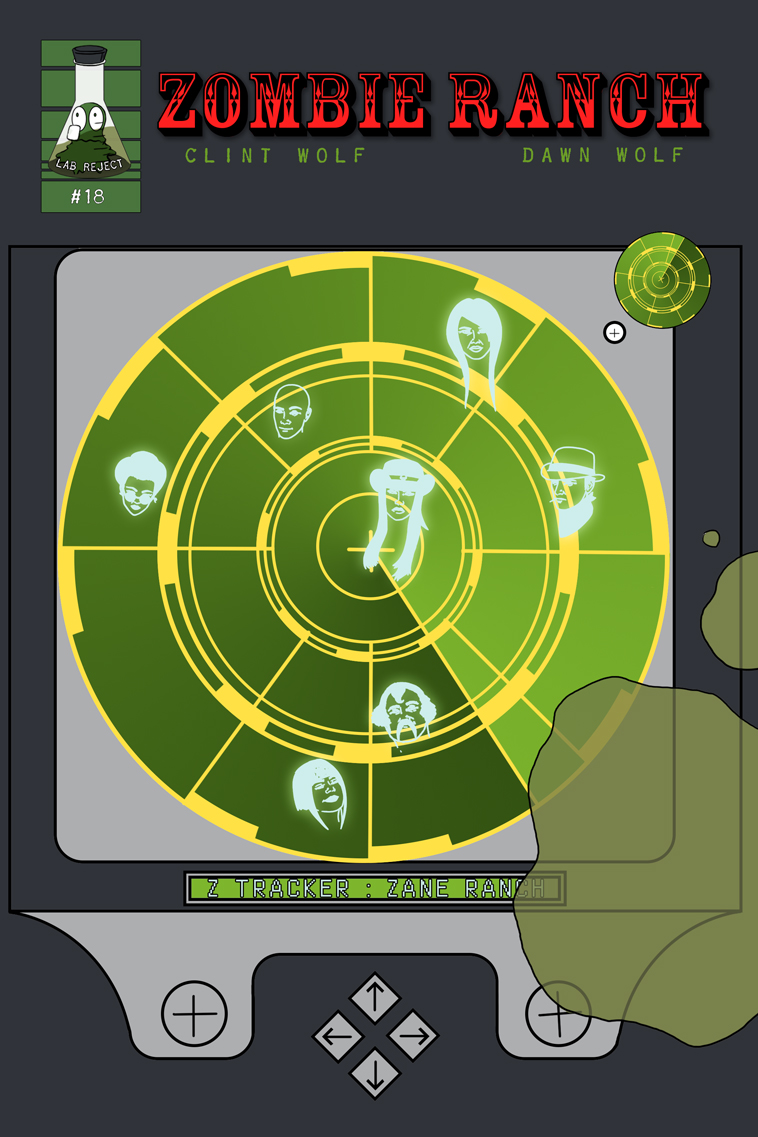
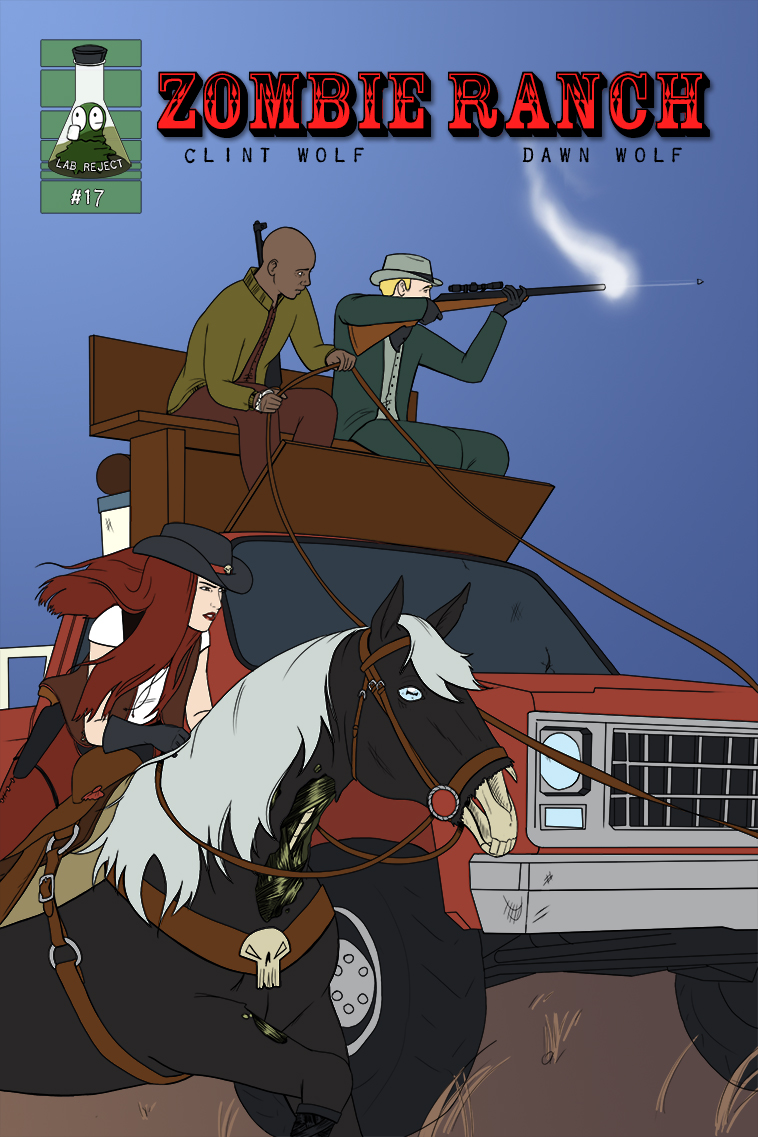
2 thoughts on “543 – Cradles And Graves”
Keith
Oh lordy, they really are a great couple…though, I suggest adopting.
Anonymous
Consequences be damned, because doing nothing might be worse.